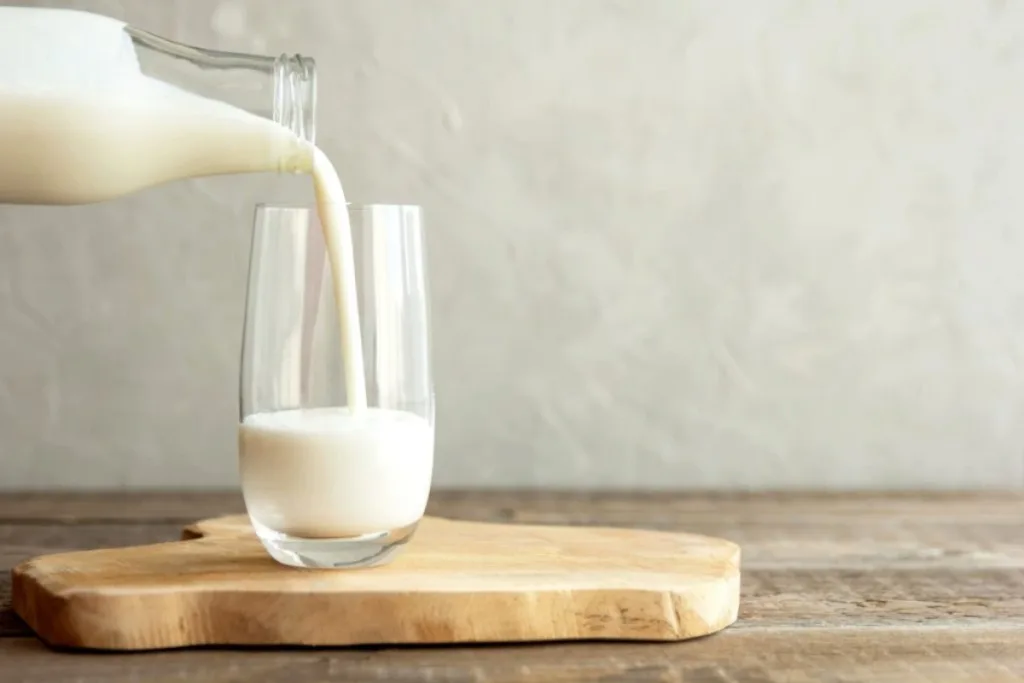Cravings during pregnancy represent one of the most intriguing aspects of this journey.
Among the most common cravings is milk, which often raises questions about its underlying causes.
This article delves into the science behind why you crave milk during pregnancy, examining factors such as hormonal fluctuations and nutritional needs. It also discusses the potential health benefits of milk for both the mother and the baby.
Moreover, it offers practical tips for managing these cravings and emphasizes when it may be appropriate to consult a healthcare professional.
Let us explore the mystery behind milk cravings during pregnancy together.
Understanding Pregnancy Cravings
Pregnancy cravings are quite a common experience for many expectant mothers, often stemming from a blend of hormonal changes, nutritional requirements, and emotional factors.
During this transformative period, the body’s need for essential nutrients—such as calcium, iron, and protein—increases, which can influence food preferences and cravings. Gaining an understanding of these cravings can offer valuable insights into managing them effectively while prioritizing both maternal and fetal health.
It is important to note that cravings can differ significantly from one individual to another, and they may also indicate the body’s specific dietary needs during this vital phase of life.
What Causes Cravings During Pregnancy?
Cravings during pregnancy are largely influenced by hormonal fluctuations, which can significantly alter a woman’s sense of taste and smell. These hormonal changes, particularly those involving estrogen and progesterone, can intensify the desire for specific foods like sweets, resulting in unique cravings.
Additionally, pregnant women may encounter nutritional deficiencies that make certain foods more appealing, as their bodies seek to meet dietary needs for both energy and essential nutrients for fetal development.
As these physiological changes occur, cravings can often be understood through the lens of nutrition, revealing a complex relationship between emotional factors and dietary habits. For example, the stress associated with impending motherhood may lead to a yearning for comfort foods, while deficiencies in nutrients like iron or calcium can provoke cravings for foods rich in those elements.
This interplay not only influences the types of cravings experienced but also highlights the importance of understanding one’s nutritional status to achieve a balanced intake that addresses both personal health and prenatal needs.
The Science Behind Crave Milk During Pregnancy

Many pregnant women often notice a strong craving for milk and dairy products, which can be explained by the body’s increased demand for essential nutrients during this time. Milk serves as an excellent source of calcium and vitamin D, both of which are crucial for fetal development and the health of the mother’s bones.
Furthermore, the protein in milk helps support the elevated energy levels needed for carrying a baby. By understanding the reasons behind these cravings, expectant mothers can make informed dietary choices that enhance their overall well-being.
Further reading: Craving Cheese During Pregnancy? Here’s What to Know
Hormonal Changes and Nutritional Needs
Hormonal changes during pregnancy significantly influence a woman’s nutritional needs and cravings, particularly for calcium and other essential nutrients. As the body undergoes various physiological adjustments to support fetal development, the demand for specific vitamins and minerals increases, often resulting in distinct cravings. Pregnant women may experience fluctuations in their energy levels, which can further impact their dietary choices and cravings for foods that provide quick energy.
This interaction between hormonal changes and nutritional requirements can influence not only what a woman desires to eat but also when she feels hungry. For example, she may find herself craving calcium-rich foods, such as dairy products and leafy greens. This highlights the importance of prenatal care in ensuring that both the mother and child receive adequate nutrition.
These cravings often correspond with increased energy needs, as the developing fetus requires a consistent supply of nutrients for optimal growth. Therefore, balancing these cravings with a well-rounded diet is essential for maintaining energy levels and supporting overall well-being throughout the pregnancy.
Possible Health Benefits of Drinking Milk During Pregnancy

Drinking milk during pregnancy offers a range of health benefits for both the mother and the developing baby, making it an important component of a well-balanced pregnancy diet.
The calcium and vitamin D present in milk are vital for proper fetal bone development and can help prevent osteoporosis in the mother later in life.
Furthermore, the high-quality protein in milk supports overall health, bolsters the immune system, and enhances nutrient absorption, ensuring that both mother and baby receive the essential nutrients they require.
Nutritional Benefits for Mother and Baby
The nutritional benefits of drinking milk extend beyond just calcium; it also provides critical nutrients such as protein and vitamin D, both essential for maternal nutrition and fetal development. These nutrients play a vital role in supporting the immune system, promoting healthy growth, and ensuring that pregnant women meet their increased dietary needs.
By incorporating milk and dairy products into their diet, mothers can create a nutrient-rich environment that positively influences infant health and development.
Milk is an excellent source of healthy fats, which are crucial for the development of the baby’s brain and nervous system. This dietary source is rich in omega-3 and omega-6 fatty acids, which foster cognitive development and contribute to overall health.
The protein found in milk aids in tissue repair and supports muscle growth, which is particularly beneficial during pregnancy when significant changes occur in the body. Additionally, the vitamin B12 present in milk supports the production of red blood cells and helps maintain the mother’s energy levels.
By prioritizing such nutrient-dense options, mothers can enhance their own well-being while laying a strong foundation for their baby’s future health.
Managing Craving Milk During Pregnancy

Effectively managing milk cravings during pregnancy requires a thoughtful approach to incorporating dairy into a balanced diet, while also taking personal preferences and dietary restrictions into account. Many pregnant women find themselves craving milk, given its rich nutrient profile.
However, it’s essential to strike a balance that promotes moderation and considers any potential lactose intolerance. Exploring healthy alternatives and substitutions can help satisfy these cravings without sacrificing nutritional needs.
Healthy Alternatives and Moderation
For those who enjoy milk but may be lactose intolerant or simply prefer alternatives, there are several healthy substitutes that can effectively meet nutritional requirements. Options like almond milk, soy milk, and coconut milk each provide different levels of protein, calcium, and other essential nutrients. It is advisable to select fortified varieties to ensure adequate intake of vitamin D and calcium, which is particularly important for maintaining hydration and overall health during pregnancy.
Oat milk is particularly notable for its creamy texture and high fiber content, making it an excellent option for smoothies or coffee. Hemp milk, on the other hand, offers a good source of omega-3 fatty acids, which can support heart health and help reduce inflammation.
Incorporating these alternatives into daily meals can be quite straightforward; for instance, they can be used in cooking, baking, or simply poured over cereal to enhance both variety and nutrition. Exploring different flavors and brands can assist individuals in discovering options that best match their taste and dietary preferences, ensuring their hydration and nutritional needs are met with ease.
When to Seek Medical Advice
Cravings are a typical experience during pregnancy, but there are times when it is important to seek medical advice, particularly if those cravings become excessive or lead to unhealthy eating habits.
Pregnant women should be aware of the potential health risks associated with extreme cravings or emotional eating, as these can result in nutritional deficiencies or negatively affect overall well-being.
Recognizing when to seek assistance is essential for ensuring a healthy pregnancy and a smooth postpartum recovery.
Further reading: Craving Fruit During Pregnancy? Here’s What It Means
Signs of Excessive Cravings and Potential Risks
Excessive cravings during pregnancy can take many forms, such as a strong desire for specific foods or difficulty controlling food intake, which may pose potential health risks. These signs could indicate underlying nutritional deficiencies or emotional eating patterns that warrant attention. By recognizing these symptoms early, pregnant women can take charge of their cravings and seek appropriate support if needed.
Beyond the intense urge for certain snacks, cravings may also lead to binge eating or the neglect of essential food groups. Such behaviors can result in weight gain or an increased risk of gestational diabetes, affecting not only the expectant mother but also her developing child.
It is vital for individuals facing these challenges to explore cravings management strategies that encourage balanced eating habits while meeting their nutritional needs. By doing so, they can reduce the risk of developing deficiencies that might negatively impact both maternal and fetal health, ultimately fostering a more positive pregnancy experience.
Frequently Asked Questions
Why do pregnant women crave milk?
Pregnant women often crave milk due to hormonal changes and increased nutritional needs during pregnancy. Milk is a good source of calcium, protein, and other essential nutrients that are important for a healthy pregnancy.
Is craving milk during pregnancy normal?
Yes, it is completely normal for pregnant women to crave milk. In fact, many pregnant women experience food cravings and aversions due to hormonal changes and increased nutritional needs.
Can craving milk during pregnancy indicate a nutritional deficiency?
In some cases, craving milk during pregnancy can be a sign of a nutritional deficiency, specifically a deficiency in calcium or vitamin D. It is important to talk to your doctor if you have strong cravings for milk or other foods during pregnancy.
Does the type of milk matter for pregnant women?
Yes, it is important for pregnant women to choose milk that is fortified with vitamin D. Vitamin D is essential for calcium absorption, and many pregnant women have low levels of vitamin D. Organic or hormone-free milk is also a good choice.
Are there any risks to drinking too much milk during pregnancy?
While milk is a healthy choice for pregnant women, consuming too much can lead to excess weight gain and potentially impact blood sugar levels. It is recommended to limit milk intake to 2-3 servings per day.




